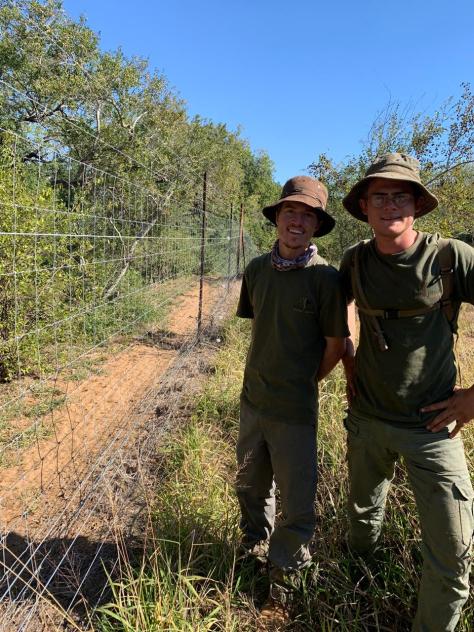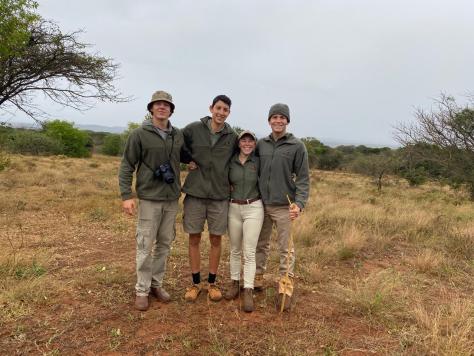I am often told, how lucky I am to live where I live, and do what it is I do for a living – I am sure people in similar positions, also often hear this and over time you really get use to being told how privileged you are from someone else’s point of view- so much so that I have developed a pretty standard response – I smile, and then agree with them not thinking about it too much.
After all it is what I do every day, if I had to articulate the way I really feel about this place called the Elephant Coast- I would not know how as it triggers an emotion so immensely strong I can barely control myself and in that moment words become meaningless and the only words I am left with, sound a little something like this..
“It left me speechless”
I write this today, although I have been writing this in my head for the past 5 years, forever letting it linger until I can find the perfect words to be able to formulate a sentence, never mind string them into a story for anyone else to share into this experience, and too be sincere I am not sure I would ever find the right words to describe the impact the Elephant Coast has had on me, this is one of those “see it to believe it” cases and I highly recommend that you do.

The Elephant Coast is a narrow stretch of land, touching home to the vast warm waters of the Indian Ocean & multi diverse Zululand (KwaZulu Natal, South Africa). It is here where you can come to feel the breath of the Sub tropical, it is here where my words become buried so deep beneath the history that these soils contain and spread so far across the floodplains and into the open ocean. The only place in the world where you can come to witness so many different ecosystems, vegetation structures, and climatic character variations flow together in perfect harmony earning the right to be classified under its own biome, namely the Indian Ocean Coastal Belt. A pure example of outstanding ecological processes, superlative natural phenomena and scenic beauty, and exceptional biodiversity and home so many threatened species.
How does one even begin to explain something so diverse, unique and endemic in simple forms?

It is in these sand forests where the last remaining herds of ‘Big tusker’ elephants roamed for centuries and left their mark on the very tips of our tongues. It is here where coral reefs have formed on remains of ancient sand dunes creating one of a kind reefs, home to over 1200 fish species, including the Coelacanth, a fish species thought to be extinct but still lurks in the depths of these waters – described as The Living Fossil. It is here where the largest estuarine system on the African continent, you can come to see the largest population of hippopotamus and crocodile share a space with the Bull Shark that follow the high tide in to feed on any juvenile life hiding among the aerial roots of mangrove trees that stand as guards along the edges of our coastline, giving chance for other habitats to develop, it is here where King Shaka’s right hand man fled to after fearing he too would suffer the same fate and be assassinated- found himself emerged deep in the beauty of the flat, vast and open land with many lakes in 1828– It was the home of the Tsonga people, then known as Tembeland – Upon arriving, the beauty that overwhelmed him set the core for the naming of this region, the name so perfectly chosen for this region ‘iSimangaliso’ meaning miracle and wonders remain as true today, as it did almost 200 years ago.
Magical.
Once it lures you in, it has got you for life. I cannot recall the exact day I fully grasped the magnitude of the words “You are lucky” meant for me. I was raised in the guiding industry, both my parents are guides and passion driven people, passion not only for the natural surroundings, but for creating a community of like-minded people to create, spread and share more moments of magic.

A passion, I guess you can say it is in my blood.
I was born with it and so I will continue to grow with it every day being reminded through a series of moments- like the first time I got to witness a loggerhead turtle emerge from the comfort of her aquatic environment to lay eggs in the coastal dunes of Bhanga Nek, Kosi Bay. That moment upon realizing that this turtle has survived the odds, living through natures natural process and unpredictability, that realization of “Here I am, in her presence, watching her… what a rarity” , even walking back up the beach, with every step brighter than the next as my feet shuffle and awaken the bioluminesence hidden beneath the surface of the faintly wet sand. The first time I ever got to witness a Humpback Whale and her calf swim right by me while diving a spot called Pinnacles in Sodwana Bay, sharing a momentary glimpse of each other as one tail movement sent her meters ahead of me and within seconds they were gone again and just like that, an appreciation for these waters I find myself in. I am quickly reminded that these are not only the breeding waters for whales, but some of the most unique reefs dominated by soft coral and marine life so diverse, significant that with every breathe fueling your lungs as you sink down deeper you become almost instantaneously humbled.
It is in these moments when it becomes clear, how lucky I truly am.
The Elephant Coast captured my heart and became my home and my office – Privileged to share the stories of the past, determined to keep a sustainable present and looking forward to many more once in a lifetime experiences, never failing to appreciate any moment whether I find myself under a blanket of stars on a clear night or even just hearing the rumble of the ocean on a windy day.
Speechless is the only way to describe the feeling one gets upon realizing that every day you get to live and breathe in a place of miracles, a literal heaven on earth, a sacred place.
There really is no place, like home.
By:Nicole Panos






















































































You must be logged in to post a comment.